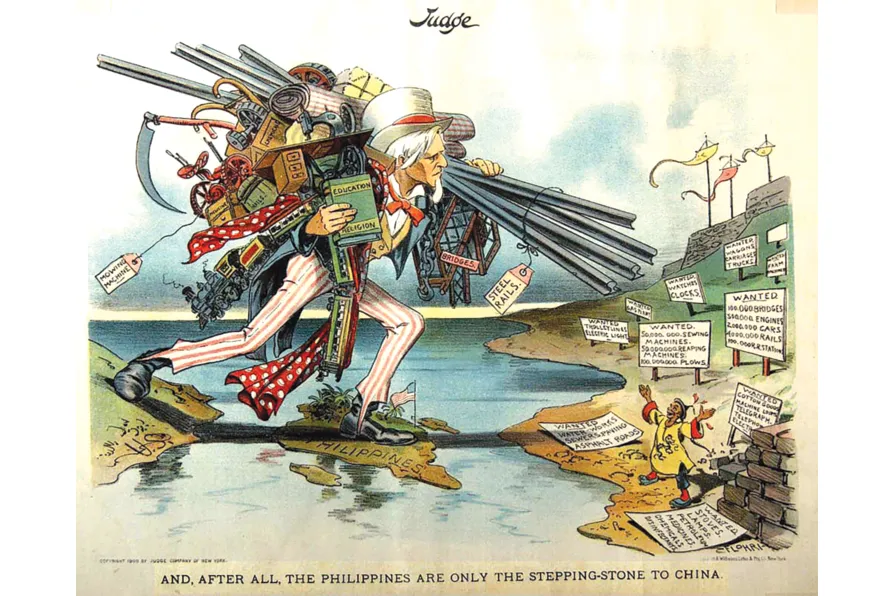Mask-off outbursts by Maga insiders and most strikingly, the destruction and reconstruction of the presidential seat, with a huge new $300m ballroom, means Trump isn’t planning to leave the White House when his term ends, writes LINDA PENTZ GUNTER

 SAME OLD SAME OLD: A 1900-1902 editorial cartoon in Judge Magazine by Emil Flohri commenting on the US conquest of the Philippines
[Cartoon: Wikipedia]
SAME OLD SAME OLD: A 1900-1902 editorial cartoon in Judge Magazine by Emil Flohri commenting on the US conquest of the Philippines
[Cartoon: Wikipedia]
IN 1845, Marx and Engels made their now-famous observation that “The ideas of the ruling class are in every epoch the ruling ideas, ie the class which is the ruling material force of society, is at the same time its ruling intellectual force.”
Transmitted through education, culture, the media and other institutions of knowledge, these dominant ideas not only govern how Western elites perceive their own societies but also non-Western ones.
Writing more than a century after Marx and Engels — but differing in their methodology Edward Said and Alain Grosrichard argued that capitalist-imperialist objectives in the Middle East have over time informed numerous distortions, misrepresentations and stereotypes found across a wide spectrum of media from British Victorian travelogues of Egypt to French Enlightenment essays on “Oriental despotism” to late 20th-century US journalism on the illegal Israeli occupation of Palestinian lands.

Huge protests against corruption and preventable deaths during flooding have rocked the government — the masses are not likely to be able to take direct control in their own interests yet, writes KENNY COYLE, but it’s a promising show of people power

On the centenary of the birth of the anti-colonial thinker and activist Frantz Fanon, JENNY FARRELL assesses his enduring influence












